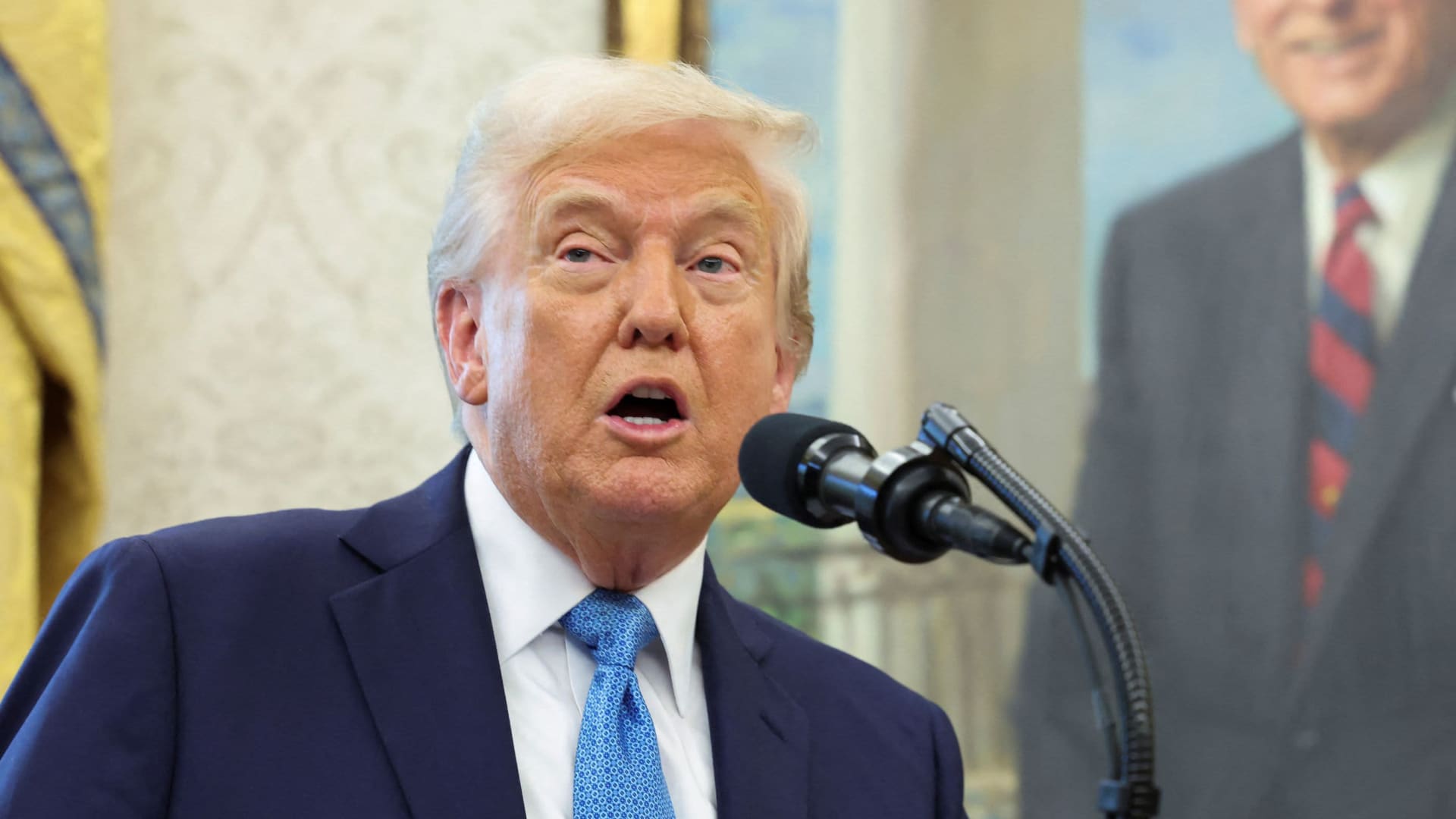Trump Rejects Firing Fed Chair Powell: A Political Earthquake?
Former President Donald Trump's repeated calls to fire Federal Reserve Chair Jerome Powell during his presidency sent shockwaves through the financial world. While he ultimately didn't succeed in removing Powell, the very suggestion underscored the fraught relationship between the executive branch and the independent central bank. This article delves into the reasons behind Trump's animosity towards Powell, the potential consequences of such actions, and the lasting impact on the Fed's independence.
The Source of the Conflict: Interest Rates and Economic Policy
The primary point of contention between Trump and Powell stemmed from the Fed's monetary policy decisions, particularly regarding interest rate hikes. Trump, prioritizing rapid economic growth and a booming stock market, consistently criticized the Fed's gradual increases in interest rates, viewing them as an impediment to his economic agenda. He publicly labeled Powell's actions as "crazy" and "ridiculous," expressing his desire for lower rates to fuel further economic expansion.
- Trump's perspective: Lower interest rates would stimulate borrowing and investment, leading to job creation and higher economic growth. He believed the Fed was stifling this growth with its cautious approach.
- Powell's perspective: The Fed's mandate is to maintain price stability and maximum employment. While acknowledging the importance of economic growth, Powell prioritized preventing inflation by gradually raising interest rates.
The Implications of Presidential Interference
The potential ramifications of a president directly interfering with the Fed's independence are significant. The Fed's autonomy is crucial for maintaining its credibility and effectiveness. Political interference could:
- Undermine the Fed's credibility: If the Fed is perceived as being influenced by political pressures, its ability to effectively manage the economy would be compromised. Markets rely on the Fed's independence to make unbiased decisions.
- Increase inflation: A politically-influenced Fed might be pressured to keep interest rates artificially low, leading to runaway inflation. This could devastate the economy in the long run.
- Damage investor confidence: Uncertainty about the Fed's independence can spook investors, leading to market volatility and potentially a recession.
The Fight for the Fed's Independence
The ongoing debate surrounding the relationship between the president and the Federal Reserve highlights the crucial importance of an independent central bank. The Fed's independence safeguards it from short-term political pressures, allowing it to focus on long-term economic stability. While presidents can certainly voice their opinions and concerns, overt attempts to influence the Fed's decision-making process threaten this vital independence.
This episode serves as a powerful reminder of the delicate balance between political accountability and economic stability. Maintaining the Fed's independence is not merely a technical matter; it's a cornerstone of a healthy and resilient economy.
Looking Ahead: The Legacy of Trump's Actions
Trump's vocal opposition to Powell's leadership, though ultimately unsuccessful in removing him, left a lasting mark on the political landscape. It raised questions about the boundaries of presidential power over independent agencies and the potential consequences of politicizing monetary policy. The episode continues to be debated among economists and political scientists, underscoring the ongoing need for safeguarding the Federal Reserve's autonomy.
Call to Action: What are your thoughts on the delicate balance between presidential power and the independence of the Federal Reserve? Share your opinions in the comments below!

